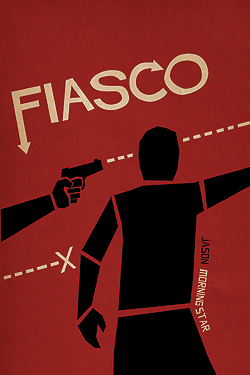
As someone who writes tales about people who don’t actually exist, the process of telling stories fascinates me. While working alone allows me to be the final arbiter of what does and does not happen, some of the best storytelling experiences I’ve had come not from a word processing document, but from other books and dice. The methods and weight of rules might vary, but the experience is always unique.
Some games are built specifically to emphasize their story and characters more than anything else. Fiasco and Shock: are my two go-to examples of tabletop games firmly in story mode, while Maschine Zeit and Farewell to Fear maintain some more traditional dice-rolling rulesets not to define gameplay, but to reinforce storytelling. The emphasis in these games is on who the players’ characters are, not necessarily what they do.
On the flip side are games like Dungeons & Dragons and any of the titles within the World of Darkness universe. The ‘background’ portion of a given player’s character sheet is entirely optional, and the emphasis is on the stats depicted on the front. These games are built to generate epic moments, memorable feats of daring-do, and nail-biting suspense as the dice roll.
And then, there are those games with what I’d like to call ’emergent storytelling’. Quite a few board games try to work atmosphere and elements of storytelling into their gameplay, like Pandemic, Elder Sign, or Escape!, but the nature of these games’ mechanics tend to get in the way of actually telling a story. Boss Monster and Seasons, on the other hand, give players enough breathing room to give their on-the-table representatives a bit more personality. Between turns, you may decide that your adorable forest-dwelling bunny wizard is actually bent on world domination, or that your towering and malevolent gorgon dungeon master actually wants to flip her dungeon so she can go on a long-awaited vacation. The towns built in Suburbia can’t help but take on some personality (“Why is that high school right next to a slaughterhouse?”). And the excellent Battlestar Galactica has you not only taking on familiar faces, but pitting them against one another in new ways as you try to determine who among you is a Cylon even as you struggle to survive. There’s nothing quite like throwing the Admiral in his (or her) own brig just on a gut feeling your character has. Finally, there are those who would advise you not to play Twilight Imperium with role-players. If a gamer take the honor of their race seriously, there may be a major grudge that plays out over the game’s many hours if you do something like occupy one of their systems or assassinate one of their councilors. Who says politics is boring?
What games do you feel cater more towards storytelling? What emergent gameplay do you enjoy the most?


